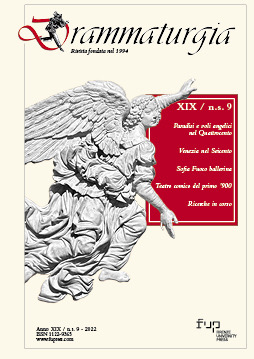Published 2022-12-15
Keywords
- Sofia Fuoco,
- ballet,
- Nineteenth Century,
- bigraphical discourse
How to Cite
Abstract
Sofia Fuoco is an Italian dancer trained by Carlo Blasis at the Teatro alla Scala. She becomes a celebrated ballerina in Giuseppe Verdi’s operas, both in Milan and Paris (where she has her debut in 1846), as well as in full-length ballets created for herself. After Paris, she dances in London and Madrid, but also in dozens of less important cities, until her retirement from the scene in the late fifties, popularizing in Europe the sunny spirit of the so-called »Italian style«. In addition to the mostly positive comments by the press, which praised her amiability, vivacity and warmth, and to the florilegium of praising compositions, quite usual for the dancing celebrities, some biographical writings are also published that depict a ballerina with technical skills, temperament and beauty, but also a good-hearted woman. Through the privileged lens of Sofia Fuoco’s »microhistory«, this essay focuses on the critical and biographical multicultural discourses of the time, but also it investigates the modes of construction of the artistic identity of an Italian dancer of the mid-Nineteenth Century Europe.


